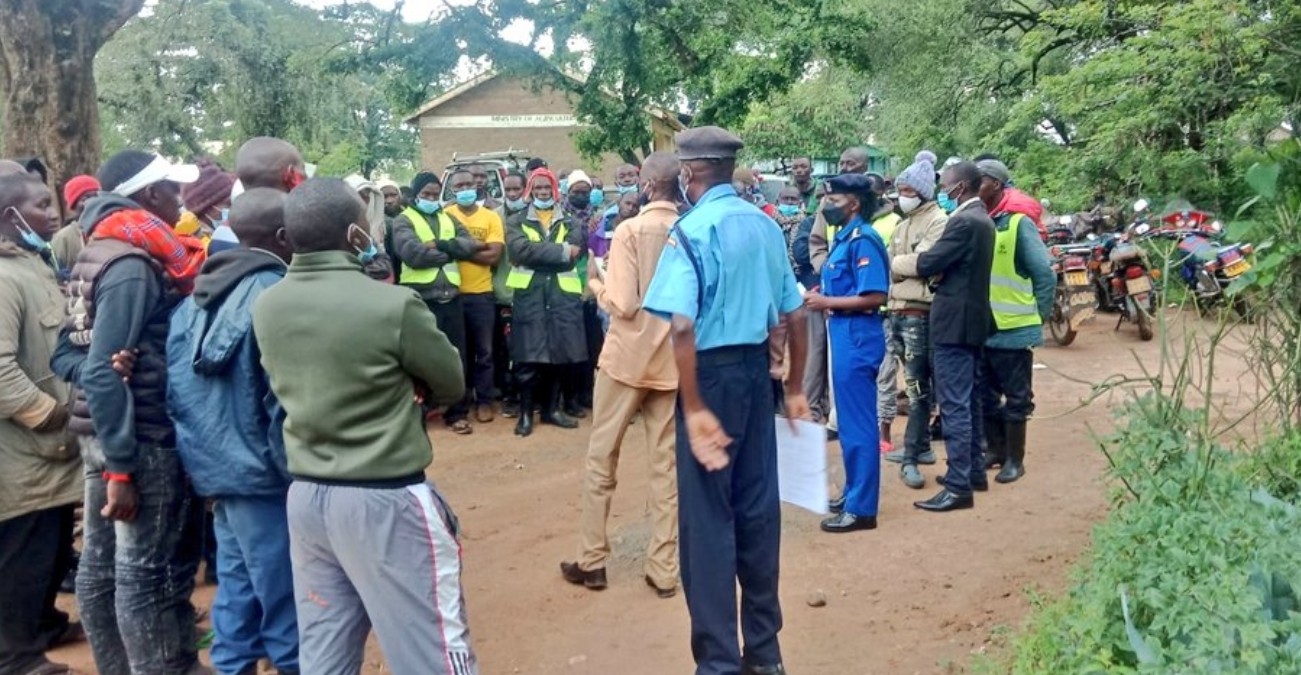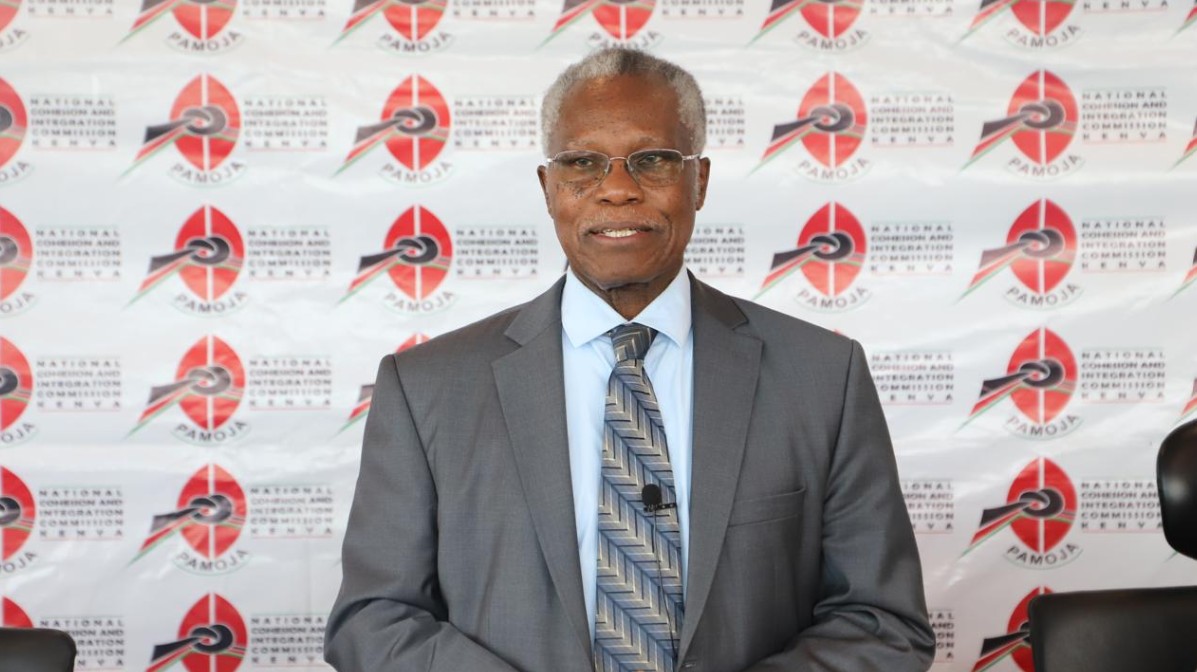Report: Deep-rooted police issues fuel public distrust despite years of community policing

Community policing was first introduced in the country in 2005 by the late former President Mwai Kibaki in realisation that NPS, as an agent, is not the sole custodian of national security.
A new government report on community policing in Kenya reveals that the National Police Service (NPS) continues to struggle with public trust, largely due to deep-rooted systemic, historical, and structural issues that shape negative public perceptions and experiences with the police.
The report by the National Crime Research Centre (NCRC) released this week shows that while years of community policing have led to enhanced cooperation between the police and the community in the form of increased information sharing, involvement of community in prioritisation of their security needs, enhanced openness in the activities of the police and involvement of community in addressing crime risk factors in their neighbourhoods, community policing initiatives and activities have not fully influenced public trust in the police positively.
More To Read
- MPs slash police insurance budget by Sh883 million to settle debt on stalled Mbagathi hospital
- Four suspects linked to criminal gang arrested over Kasipul MP Charles Were murder
- Over 100,000 police officers miss out on insurance benefits despite Sh6 billion cover
- NPS condemns harassment of journalists at drama festivals Nakuru, vows disciplinary action
- National Assembly approves additional cash for underfunded police functions
- Police assure journalists of safety amid rising cases of harassment, intimidation
NCRC conducted the study in select 11 counties of Nairobi, Mombasa, Machakos, Kisumu, Nakuru, Nyeri, Uasin Gishu, Bungoma, Garissa, Turkana, and Isiolo, where community policing programmes have been and are being implemented.
"From the findings, 50 per cent of the respondents said community policing had not influenced their trust in the police, 33 per cent said it had increased their trust in the police, while 17 per cent said it had reduced their trust in the police," the report states.
This was found to be a pointer to the fact that there are still long-standing systemic, historical and deep-seated structural issues in the NPS that continue to negatively shape public experience, perceptions and opinion about the police.
Among the category of persons that the police have difficult relationships with were found to be the youth leading at (59.0 per cent); followed by boda boda operators (22.0 per cent); business community (22.0 per cent); persons of male gender (14.0 per cent); matatu public transport operators (10.0 per cent); victims of crime (8.0 per cent); women (4.0 per cent) in some contexts; informers (4.0 per cent), amongst others.
Generalised condemnation
The strained relations that the police have with the youth are cited to have resulted from over-profiling, over-policing, targeting, blanket swoops and generalised condemnation of young people as likely 'suspects' or 'criminals'.
At the same time, corruption (82.0 per cent) topped the complaints Kenyans have against the police, which has a direct impact on community-police relations.
This is followed by delayed response to distress calls and emergencies (65.0 per cent), police harassment and intimidation (51.0 per cent), rogue police officers colluding with criminals (50.0 per cent), unlawful arrests and detentions (38.0 per cent), limited police visibility (25.0 per cent), abuse of police power (24.0 per cent), police brutality and excessive use of force (21.0 per cent).
Others are police favouritism and discrimination in discharge of duty (17.0 per cent), extortion of the vulnerable by rogue police (15.0 per cent), lack of confidentiality on information shared by community (14.0 per cent), involvement of police in criminal activities (13.0 per cent) and Human rights abuses and violations (11.0 per cent).
Community policing was first introduced in the country in 2005 by the late former President Mwai Kibaki in realisation that NPS, as an agent,y is not the sole custodian of national security.
It sought to partner with Kenyans through clusters like the Nyumba Kumi, human rights organisations, religious organisations, media, private sector, learning institutions, youth and women, to facilitate trust between the general public and the police.
This way, citizens would provide the police with insights into the specific crime challenges occurring within their neighbourhoods and can aid officers in investigations and in turn, the communities stand to benefit from reduced crime and improved quality of life.
However, the implementation of community policing faced challenges over time with the report showing that this was led by resource constraints to ensure its implementation, followed by low levels of awareness by community members on the concept of community policing.
Many, according to the report, also believe that corruption among rogue police officers has hindered effective application of community policing, this is in addition to a lack of trust between the general public and police.
Lack of incentives
A lack of incentives for community members and police to implement community policing initiatives also affected its implementation, lack of motivation for community policing committee members, lack of monitoring and evaluation of community policing initiatives, lack of meaningful community empowerment and participation in the community policing programmes, poor coordination between community policing committees and the police and suspicion towards community members participating in community policing being viewed as police informers.
Over time, it also became clear that the lack of ways to sustain the programme's initiatives was followed by public apathy and fear of reprisal from criminals if they cooperated with the police.
In order to ensure effective community policing, the report recommends that the NPS address rampant crime in the localities and address contentions that the service was unresponsive to distress calls and reported crimes.
"Empirical evidence has shown that police alone cannot effectively tackle security problems. The NPS should put in place modalities to revitalise community policing as a key policing strategy to identify crime risk factors, crime trends, hot spots, and criminals in the localities. Through this, the NPS will improve its efficiency and effectiveness in resolving local security challenges," the report states.
It also calls on the Ministry of Interior and the NPS to address long-standing systemic, historical and deep-seated issues that continue to negatively shape public perceptions and opinion of police.
"Modalities should be instituted to address citizen concerns and complaints over police excesses, misconduct, abuse of power, human rights abuse and other violations that continue to shape public experience and perception about the service to date," says the report.
Police accountability
It further implores the Ethics and Anti-Corruption Commission (EACC) and other agencies such as the Independent Policing Oversight Authority (IPOA) to strengthen police accountability mechanisms to address corruption, harassment, excessive use of force and human rights abuses and other violations in the service, that lead to deep-rooted public mistrust and scepticism towards law enforcement among many Kenyan communities.
The document also calls for a paradigm shift at NPS to address the strained or difficult relationship that law enforcement officials have with young people, and other groups such as boda boda riders, the business community, matatu public transport operators, victims of crime and women in some contexts.
Top Stories Today












































